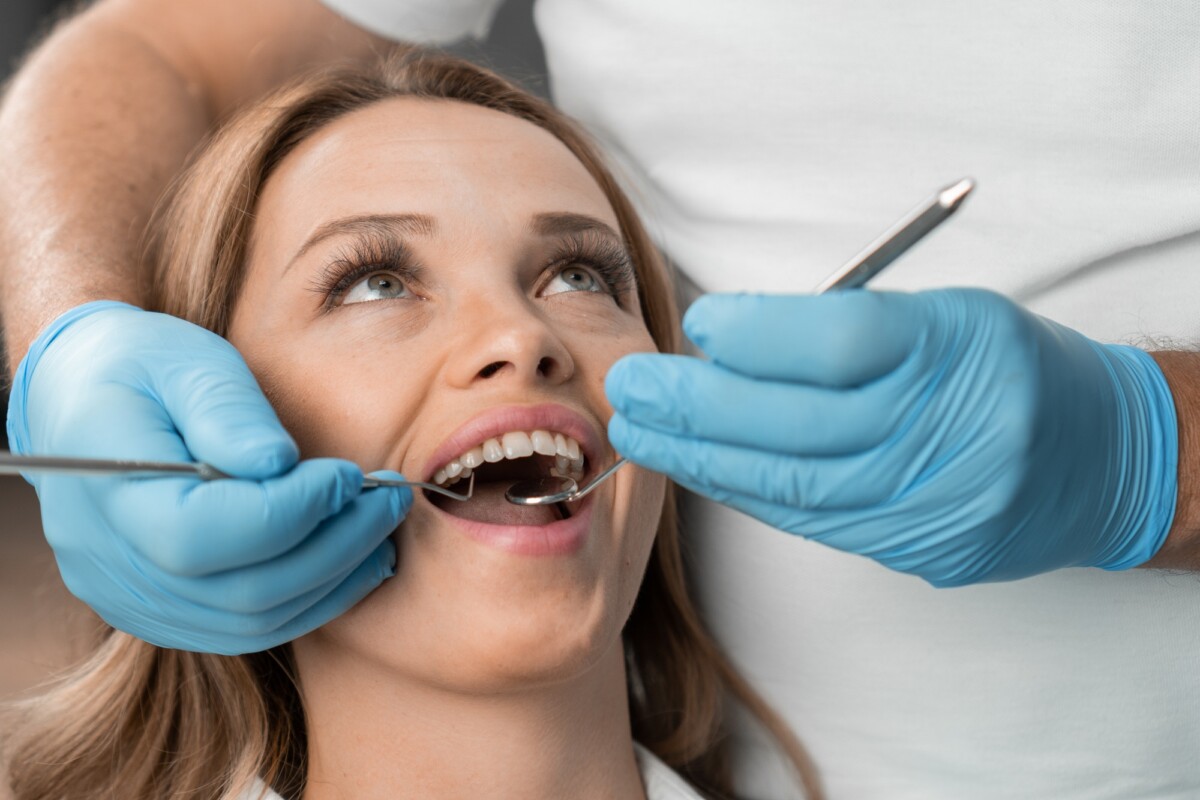Which Medicare Covers Dental? How to Get the Best Coverage
Understanding which Medicare covers dental is essential for seniors, as dental health significantly impacts overall well-being. Traditional Medicare (Part A and Part B) does not typically include dental coverage, leaving many beneficiaries uncertain about managing dental expenses. This article explores various Medicare options and their dental benefits.
Understanding Medicare Plans
Exploring Medicare Options for Dental Coverage
Navigating Medicare can be complex, especially regarding dental coverage. Here’s a breakdown of the main plans available:
Original Medicare (Part A and Part B)
- Coverage Overview: Original Medicare focuses on hospital and medical services but does not cover routine dental care like cleanings or fillings.
- Exceptions: Dental services may be covered if necessary for a medical procedure, such as jaw surgery, but these cases are rare.
Medicare Advantage Plans (Part C)
- Inclusion of Dental Benefits: Many Medicare Advantage plans offer dental coverage, including preventive services and more extensive procedures.
- Variety of Plans: Coverage varies by plan, so it’s crucial to review specifics, as some may cover crowns and dentures.
Standalone Dental Plans
- Supplemental Options: If your Medicare plan lacks dental coverage, standalone dental plans can help cover routine and emergency care.
- Cost Considerations: While these plans may increase monthly expenses, they can save money in the long run, especially for significant dental work. Always compare costs and benefits before deciding.
In summary, understanding which Medicare plan covers dental is vital for ensuring adequate dental health coverage. Original Medicare lacks dental coverage, but Medicare Advantage plans often include it, and standalone plans are available for additional support.
Medicare Part A and Dental Coverage
Understanding which Medicare plan covers dental is crucial, as standard Medicare coverage typically does not include dental care. This can be a significant concern for seniors needing dental services. While Medicare focuses on medical care, knowing the details of its various parts can help beneficiaries make informed decisions about their health care needs, including dental services.
Medicare Part A, which serves as hospital insurance, generally does not cover routine dental care. However, there are specific situations where dental services may be covered under Part A.
Inpatient Hospital Stays
- Dental procedures related to hospitalization: If dental surgery requires a hospital stay, Medicare Part A may cover the associated costs. This includes dental work performed in a hospital due to medical necessity.
- Emergency dental care: Medicare Part A may also cover hospital services for emergency dental procedures, such as treatment for jaw fractures or infections.
Limited Coverage for Dental Services
- No routine dental care: Medicare Part A does not cover routine dental exams, cleanings, fillings, or dentures, leaving beneficiaries to seek alternative coverage options.
- Out-of-pocket expenses: Seniors should be prepared for out-of-pocket costs for routine dental care, as nearly 74 million Americans lack dental insurance, emphasizing the need for understanding coverage options.
Alternatives for Dental Coverage
- Medicare Advantage Plans: Some Medicare Advantage Plans (Part C) offer additional benefits, including dental coverage for routine check-ups and procedures.
- Standalone dental insurance: Purchasing a standalone dental insurance plan can complement Medicare coverage, providing a more comprehensive approach to dental health.
Call the official Medicare helpline at 1-800-MEDICARE (1-800-633-4227) to ask your questions or get more information.
Medicare Part B and Dental Services
Understanding which Medicare plan covers dental services is crucial for beneficiaries, as dental health is vital to overall well-being. Many people are unaware of Medicare’s limitations regarding dental coverage. Original Medicare (Parts A and B) typically does not cover routine dental care, but there are specific circumstances where dental services may be included. This section focuses on Medicare Part B and its relationship with dental services, guiding you through your options effectively.
Medicare Part B covers outpatient care, preventive services, and some medically necessary procedures, but its dental coverage is limited. Key points include:
What Dental Services Does Medicare Part B Cover?
- Medically Necessary Dental Procedures: Medicare Part B may cover services like:
- Surgery for jaw issues or dental infections.
- Dental procedures needed before a covered medical procedure.
- Treatment for oral cancers.
However, routine care such as cleanings and fillings is not covered, so consulting your healthcare provider is essential.
Limitations of Medicare Part B Dental Coverage
- No Coverage for Routine Care: Medicare Part B does not cover:
- Routine check-ups, cleanings, or fillings.
- Dentures or dental implants.
This can lead to unexpected out-of-pocket costs, especially since nearly 74 million Americans lack dental insurance, making it crucial to explore alternatives.
Alternatives for Dental Coverage
- Medicare Advantage Plans: Some Medicare Advantage (Part C) plans offer additional dental benefits, including:
- Routine check-ups and cleanings.
- Coverage for fillings and extractions.
Reviewing the specific dental benefits of these plans is important, as they can vary significantly. Always check which Medicare plan covers dental services that meet your needs.
Medicare Advantage Plans and Dental Benefits
Understanding which Medicare plan covers dental is essential for seniors, as dental health is vital for overall well-being. Original Medicare (Part A and Part B) does not cover most dental services, prompting many beneficiaries to opt for Medicare Advantage plans, which often include dental benefits. These plans, also known as Medicare Part C, are provided by private insurance companies and offer comprehensive healthcare, including dental care.
Medicare Advantage plans typically cover a range of dental services, making them an attractive option for seniors.
What Dental Services Are Typically Covered?
- Preventive Services: Most plans cover routine check-ups, cleanings, and X-rays, which are crucial for maintaining oral health.
- Basic Restorative Services: Coverage often includes fillings and extractions, helping to manage unexpected dental costs.
- Major Services: Some plans may cover crowns, bridges, and dentures, though this varies by provider.
Access to these services can significantly enhance a senior’s quality of life, preventing complications from untreated dental issues.
How to Choose the Right Medicare Advantage Plan for Dental Coverage
- Review Plan Options: Compare different Medicare Advantage plans in your area to find comprehensive dental coverage.
- Check the Network: Ensure the plan includes a network of dental providers you prefer.
- Understand Costs: Be aware of premiums, deductibles, and co-pays to make an informed decision.
In summary, Medicare Advantage plans can provide essential dental benefits that Original Medicare lacks, ensuring seniors receive necessary dental care as they age.
Supplemental Dental Insurance Options
Dental coverage is a significant concern for many seniors, making it essential to understand which Medicare plan covers dental services. Original Medicare (Part A and Part B) typically does not include dental coverage, but there are supplemental options available to help fill this gap. Let’s explore these supplemental dental insurance options to ensure you have the coverage you need.
Navigating Medicare can be overwhelming, especially regarding dental coverage. Fortunately, several supplemental plans can help manage dental expenses effectively. Here are some common options:
Medicare Advantage Plans
- Medicare Advantage (Part C) plans often include dental coverage, offering preventive services like cleanings and exams at no extra cost.
- Coverage can vary significantly between providers, so reviewing specific plan details is essential.
Standalone Dental Plans
- If you prefer Original Medicare, you can purchase a standalone dental plan, which varies widely in coverage and costs.
- These plans allow customization to fit your needs but be sure to understand the coverage limitations.
Employer-Sponsored Dental Insurance
- If you are still working or have access to a retiree health plan, you may have dental coverage through your employer, often at a lower cost than individual plans.
- Always check with your HR department for details on available options and coverage specifics.
Understanding these options can help you secure the dental coverage you need for your health and financial well-being.
FAQs
Q: Which part of Medicare covers dental?
A: Original Medicare (Part A and Part B) generally does not cover routine dental care like cleanings, fillings, or extractions. It only covers dental services related to certain medical conditions, such as jaw reconstruction after an accident.
Q: Which Medicare plan has the best dental coverage?
A: Medicare Advantage plans (Part C) often include dental benefits, with varying levels of coverage. These plans typically offer the best dental coverage compared to Original Medicare.
Final Thoughts
If you’re wondering which Medicare covers dental, the best option for routine dental care is usually a Medicare Advantage plan. Original Medicare offers limited dental benefits, so it’s important to review your options and choose a plan that fits your dental needs.
Fast, free, and easy—get your Medicare quote today at NewMedicare.com or dial 📞 (833) 203-6742.





